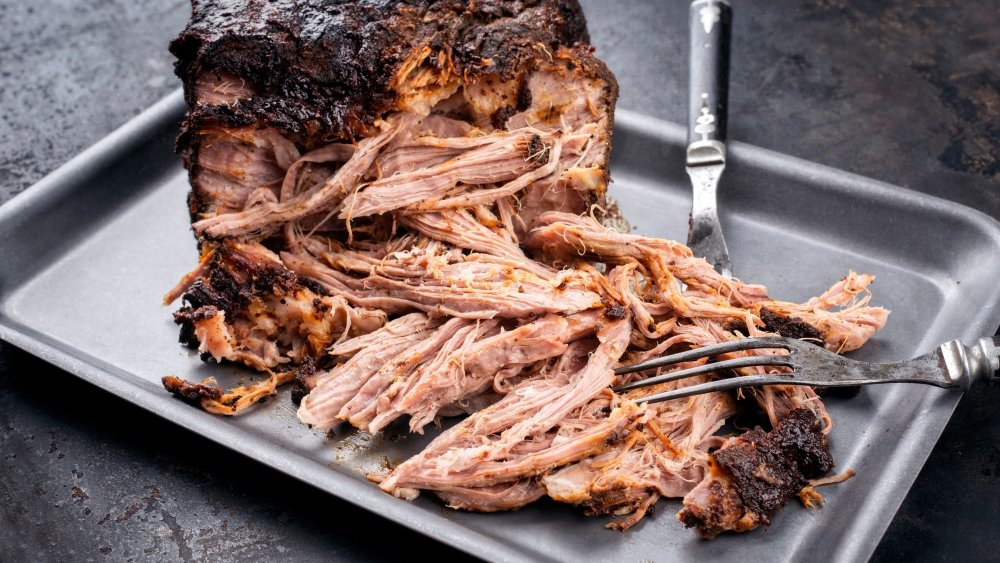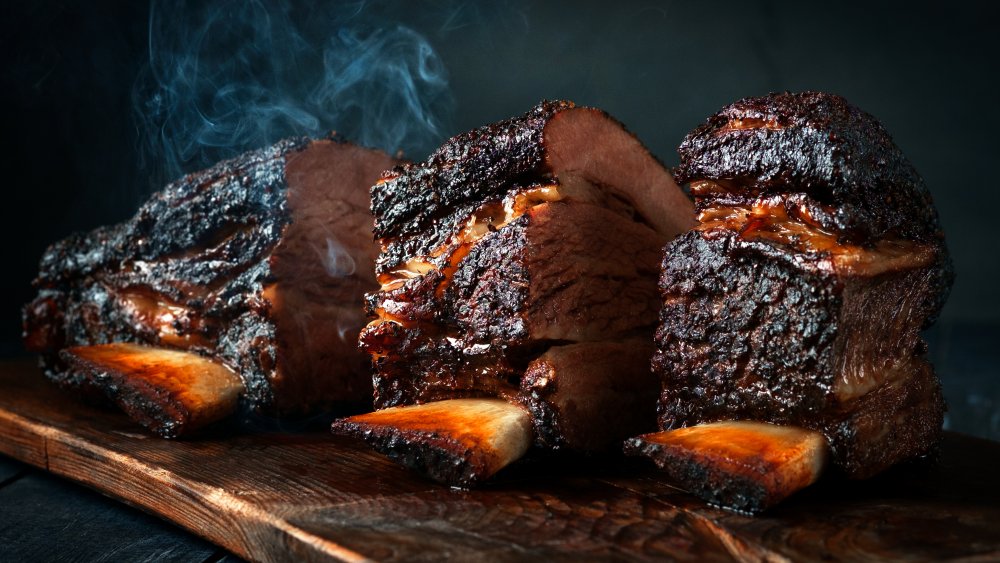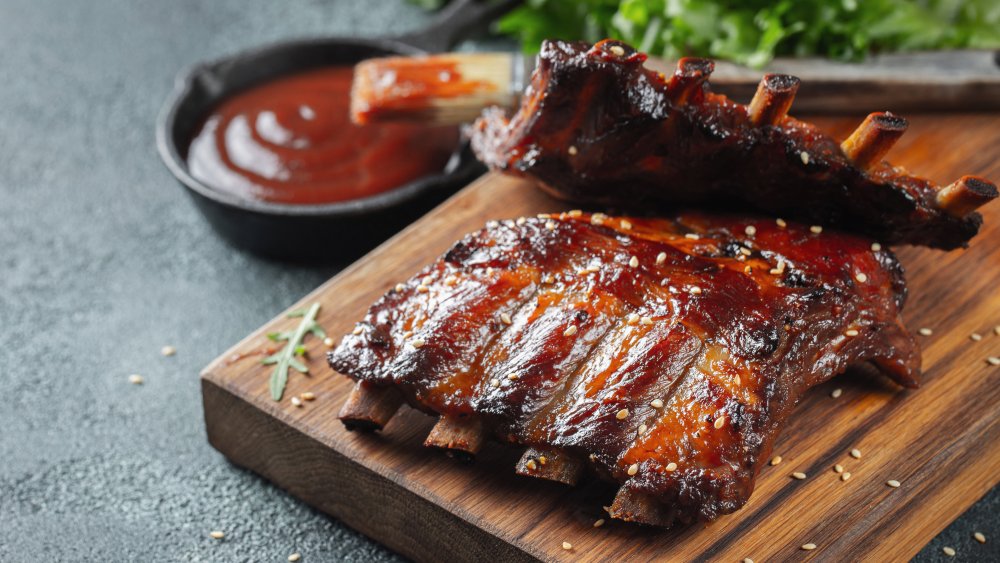Myths About BBQ You Can Stop Believing
Barbecue, a staple of both the summer and the south, is a popular food many home cooks try to replicate, particularly on holidays during the warmer seasons, like Memorial Day or Fourth of July, when outdoor celebrations are the most popular. But is what you're making at home really barbecue? What are the different types of barbecue? How important is the marinade? There are a lot of questions like these that many people have misconceptions about, resulting in myths about barbecue.
There is a range of myths being propagated about barbecue, from the just plain silly (it's man's work) to the myths that sound like they could be true, but are actually not (barbecue is a French term), to the ones that most people firmly believe when they cook meat, but are actually inaccurate.
Let's look at some of these myths and clarify the concept of barbecue — you never know, a better understanding could improve your cooking.
When you cook out, you're BBQing
The biggest myth about barbecue is a result of confusing terminology. A party or gathering in your backyard is a barbecue, but the term refers to the event as opposed to the food. It's a secondary definition as well, meaning the same word is used with multiple meanings (think of the term "bridge," which can be a section of music or a structure you drive on to cross a river). When you cook barbecue, it is referring to the cooking process (via Merriam-Webster). This gets more confusing if you eat cooked barbecue, as you're now talking about the food. All uses are correct, but most people are unaware of the difference and use the term interchangeably with grilling.
When in reference to cooking, barbecue is the process of cooking a large cut of meat for a long period of time, letting the smoke add flavor to the meat, which is a long, slow process. Grilling, on the other hand, uses propane or charcoal as a heat source to cook meat quickly at a high temperature by searing and smoking it, hardening the outside while preserving the tenderness of the meat inside (via Tasting Table). Think about the cooking appliance or apparatus that you're using. For barbecue, you would use a barbecue pit. For grilling, you use a grill. You can't make barbecue on a grill, though grilled food is also delicious.
There are only four regional types of BBQ
The next myth is that there are four regional styles of barbecue. The regions usually cited include Texas, Memphis, North Carolina, and Kansas City. Heinz manufactures four different sauces aimed at the market for each region. The myth isn't that those four regions are incorrect, but that those are the only four types of regional barbecue. There are many regions of barbecue, each known for a different specialty.
There is Chicago, known for rib tips, and St. Louis, known for pig snoots. Central Texas is known for moist brisket, while East Texas is famous for chopped brisket sandwiches (via Thrillist). The Deep South makes up its own region with specialties such as chopped pork, barbecue hash, and mustard barbecue. Alabama is known for pulled pork sandwiches and white sauce. There are even barbecue regions in California and Hawaii. The Santa Maria Valley in California is known for grilled tri-tip beef, while Hawaii is famous for kalua pig (via Washington Post).
BBQ sauce makes an excellent marinade
A further myth relates to marinades, which are used in the barbecuing process. Barbecue sauce, contrary to what you think the name might indicate, is actually a terrible marinade. Instead, you're better off using it as a glaze or served on the side. The reason barbecue sauce isn't meant for the actual barbecue process is because the cooking process is so long that aspects of the sauce, such as sugar, will have burned up before the meat is even cooked on the inside. Barbecue sauce isn't recommended for any meat cooked for more than 20 minutes. It is still a great marinade for grilling, where the cooking process is much shorter (via First We Feast).
Marinades are frequently used as a means of tenderizing meat and adding flavor. Many people add acidic ingredients such as lemon juice or vinegar to break down the connective tissues that can toughen meat. However, marinades only penetrate the outer layers of meat. Acidic ingredients won't help tenderize meat either, but does cause you to run the risk of the outside of the meat turning mushy (via Spruce Eats).



